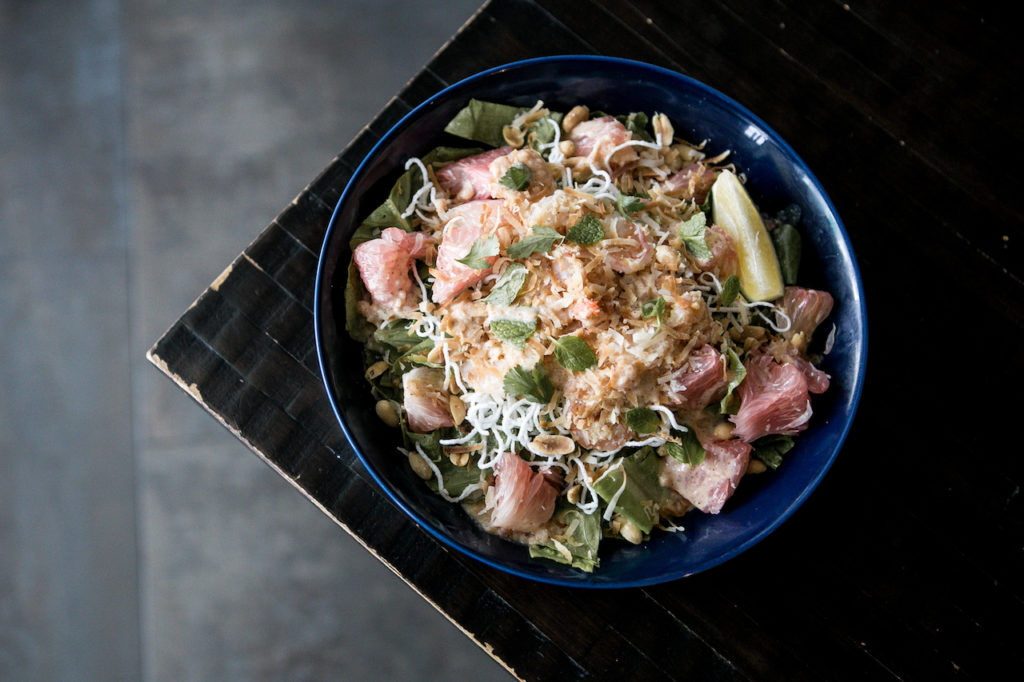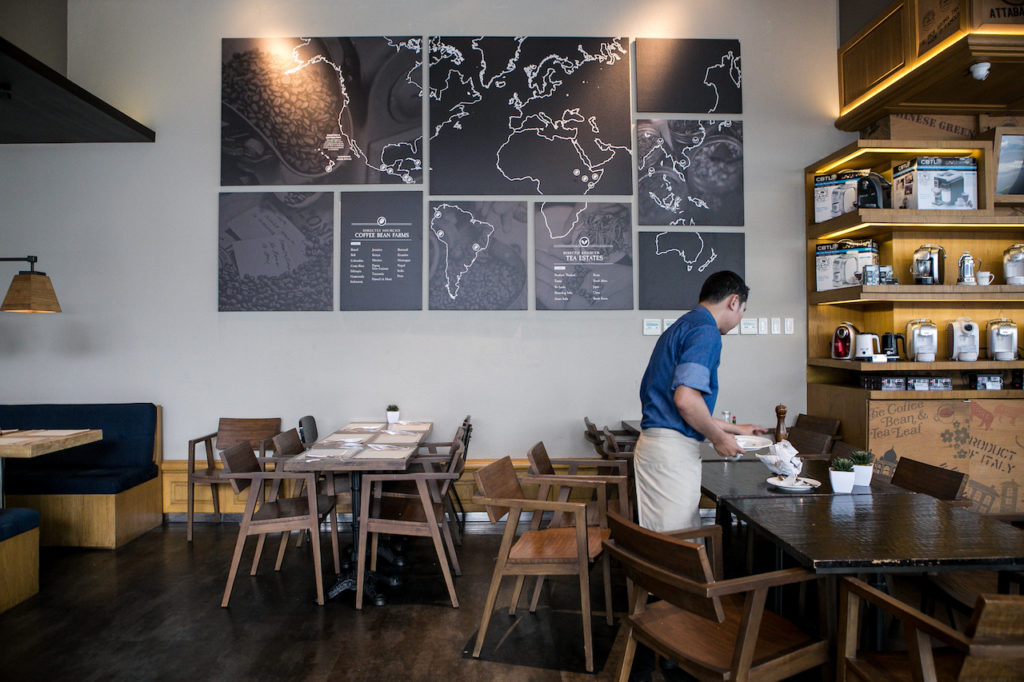These beverages’ branding, while straightforward, is unmistakable.
Having been a major competitor in the coffee franchise boom of the early 2000s, The Coffee Bean and Tea Leaf’s (CBTL) emblem is a well-known beacon for lovers of the caffeinated beverages they offer. Celebrating 15 years in the fickle Philippine market is not something to balk at, and VP of marketing Paolo del Rosario has all the right to be proud. “The Philippine franchise is the second best in the world, second only to Korea,” he claims.
However, while foreign brands are fitting comfortably right into the local market, no beverage company has seen more mileage in the Philippines than centuries-old Destileria Limtuaco. Established in 1852 by Don Bonifacio Limtuaco, its business development is now overseen by direct descendant Aaron Aw.
“The Philippines has always had a cocktail culture,” he says. He’s been reading up on historical beverage books such as Charles Baker’s “Jigger, Beaker, and Glass: Drinking Around the World” for inspiration, especially since he has a gin brand in the works. Aside from jumping on the gin trend, Aw has opened Manille Beach Bar (named after their famous calamansi liqueur) in Palawan and a Manille Pub pop-up in Makati last year where he utilizes Destileria Limtuaco’s line of spirits and liqueurs.
With their distillery going strong churning out commercially accepted brands as well as small-batch liqueurs catering to the local and international cocktail culture, Destileria Limtuaco’s foray into bars might seem like a case of the big fish swimming in a small, overpopulated pond. However, to the young Aw, it’s a necessary response to a curious yet largely uninformed market. “People seem to like our brands,” he says. “However, they don’t really know how to use them. That’s what the bars are for—to educate consumers.”
“People seem to like our brands,” says Aaron Aw. “However, they don’t really know how to use them. That’s what the bars are for—to educate consumers.”
Likewise, CBTL’s move to open a flagship store in 2012 at Net Park, Bonifacio Global City (BGC) is the brand’s way of adapting to the local restaurant culture. Its 26th Street Bistro is something unique to the Philippine franchise and a testament to how the locals’ penchant for dining out is influencing the food and beverage game.
CBTL has a similar cafe concept called The Coffee Bean and Tea Leaf Beanstro in the US, Singapore, and Malaysia; however, the menu seems too “Westernized” for Filipino tastes. Not that 26th Street Bistro’s menu is predominantly Asian. The selection reads like any good bistro concept complete with poached eggs, salads, steaks, and sandwiches. The French fries can compete with most high-brow comfort food establishments. However, the local CBTL franchisees felt they needed to tailor the bistro concept to its location, something that Filipino restaurateurs have learned—oftentimes the hard way.


“Our new menu was launched in September 2017 and we wanted food that catered specifically to the BGC crowd,” del Rosario says. “Those are mostly expats who reside here, office people. So the menu needs to appeal to that market while making sure it’s affordable. We want them to visit us frequently, which is really the secret to survival in this highly competitive restaurant scene.”
This location-specific menu is attributed to the metro-wide traffic jams that have rendered some local diners immobile. “People don’t travel far anymore to eat,” del Rosario observes. For Aw, though, exotic locales seem to be the key. His Manille Beach Bar in Palawan, situated in Ayala-owned Lio in El Nido, serves gin pomelos to locals and signature drinks to bakasyonistas. While Aw’s mission is to demonstrate to local drinkers how they can fully use Destileria Limtuaco’s products, the allure of catering to a global drinking scene is hard to resist. Aw wants to open more Manille bars in tourist destinations; he’s currently scoping out possible locations in Boracay. “Perhaps a hotel that doesn’t have a bar yet,” he ponders.
When not opening bars (a museum in Intramuros is in the works, which will showcase the company’s illustrious past), Aw is preoccupied with putting the finishing touches on the aforementioned gin. As he plays with the thought of naming it “Olive” after his mother Olivia Limpe-Aw, he’s taking his time to make sure the gin, composed of local spices and botanicals, is perfect upon release. Research and development understandably plays a big role in CBTL’s bistro concept; recipes and menu items are constantly tweaked depending on customer feedback. “We have a great relationship with our principals,” del Rosario says, “they trust us completely when it comes to developing our food program.”
With Filipinos being naturally social creatures who enjoy dining out and gathering in watering holes for a drink, beverage companies are capitalizing on this market quirk to expand their brands. It’s a great way to meet their consumers face-to-face, learn more about their preferences, and offer their products in an optimal setting. It’s good to see that in this digital age, experiences still make the difference.
Originally published in F&B Report Vol. 15 No. 1

